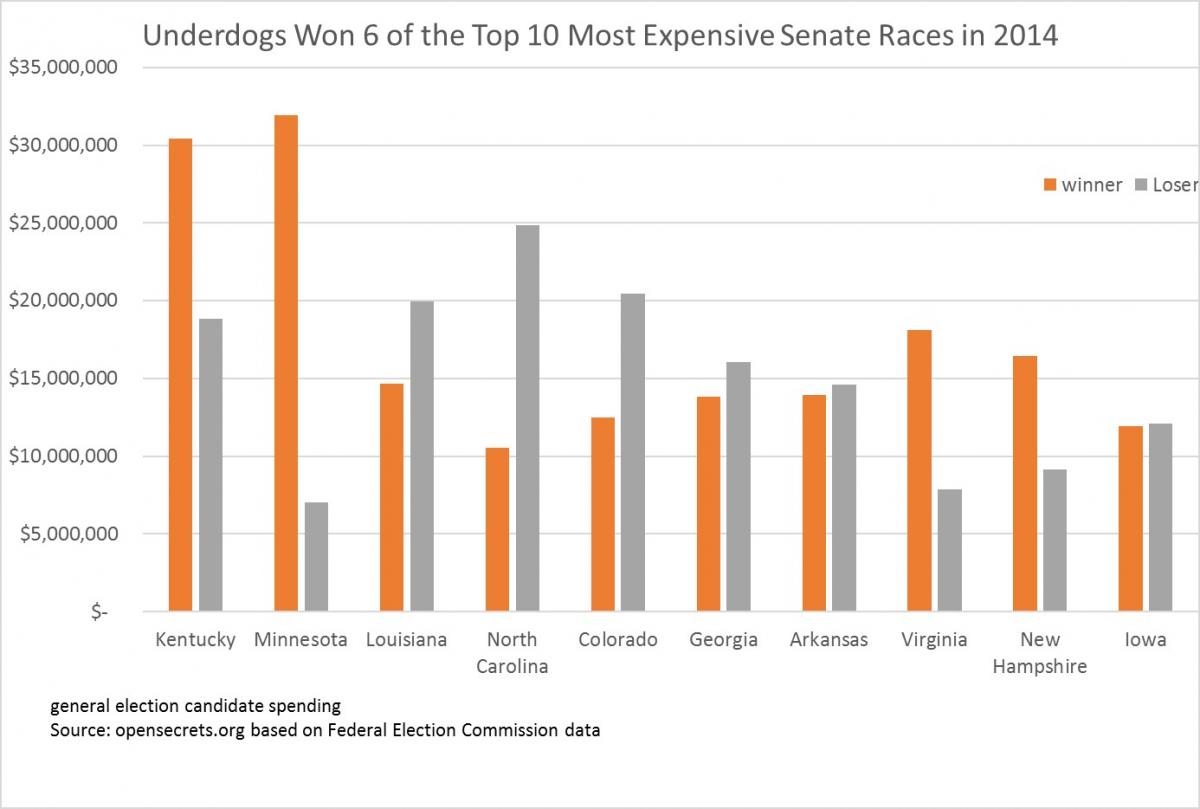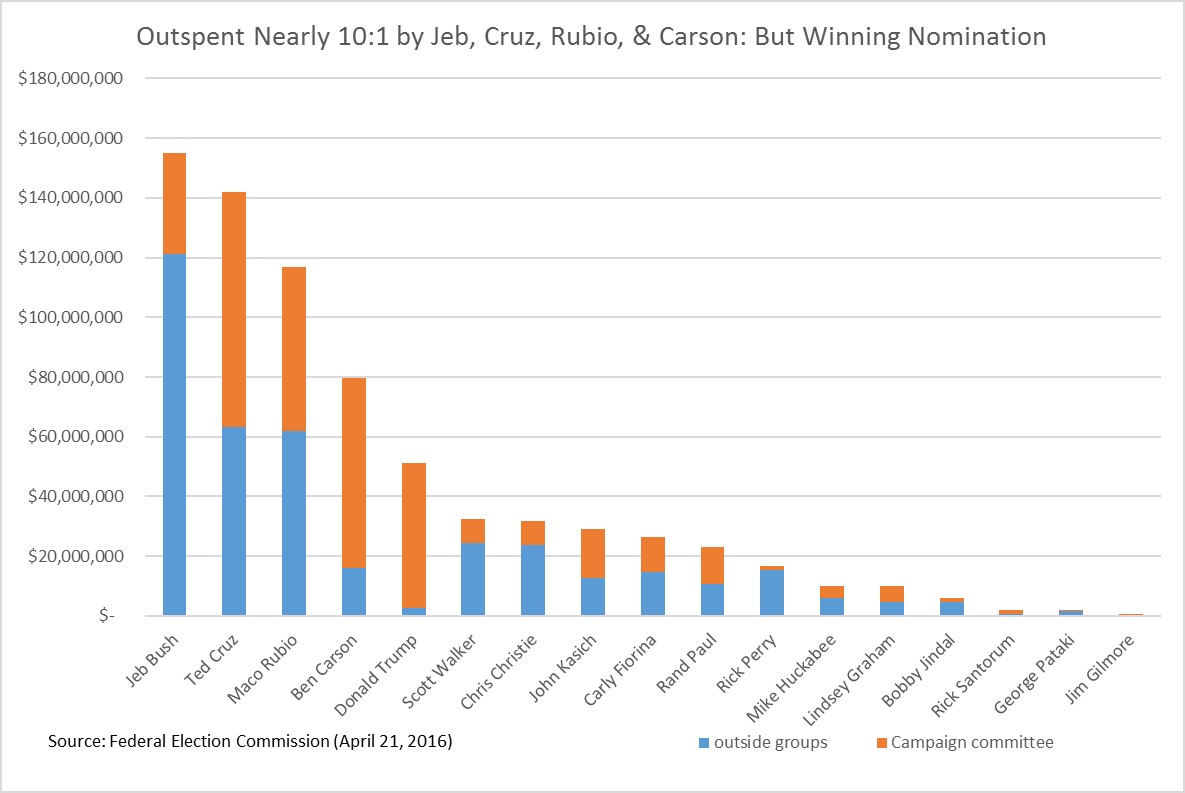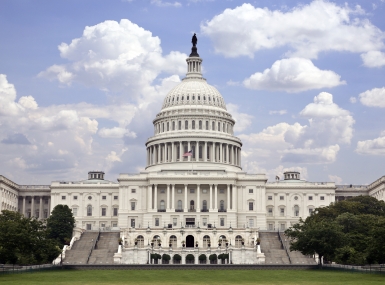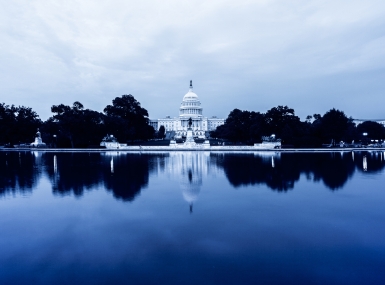Money Matters - May 30, 2016
Upcoming Events
Related News
Money & Politics: a Necessary GOOD?
Do campaigns with more access to cash enjoy an insurmountable advantage over competitors? Are incumbents and entrenched politicians the sole beneficiaries of large flows of political donations? Does the Constitution have anything to say about it? You may be surprised.
A look at the 10 most expensive U.S. Senate races of the 2014 election cycle is revealing. Candidates who found themselves at a spending disadvantage actually won six of the 10 races. And don’t be tempted to chalk those six victories up to incumbency. Not a single one of those six underdog wins went to an incumbent.
In two of those six states, the seat was open (Georgia and Iowa). And in four of those six underdog wins, the victor unseated an incumbent (Louisiana, North Carolina, Colorado and Arkansas). Yes, each of the four incumbents booted out of the Senate lost his or her seat to a competitor who spent less.
The most shocking well-funded incumbent loss in 2014 — and possibly of the past century — was not a sitting U.S. senator in general election; instead, it’s the defeat of House Majority Leader Eric Cantor to an underfunded challenger — David Brat, an economics professor at Randolph-Macon College in Virginia — in a primary. In fact, this marked the first time in U.S. history that a sitting House majority leader lost a primary election. According to opensecrets. org, Cantor spent $41 for every $1 spent by Brat in the 2014 primary leading to Cantor’s defeat. A shock-and-awe financial war chest does not guarantee victory, even for the most able of politicians.

Which brings us to the current presidential campaign season fixating the public today.
How is it that Donald Trump came to dominate the 17-person Republican Party field despite being greatly outspent individually by other nomination contenders? The spending totals aren’t even close when accounting for campaign committee and outside group spending. Jeb Bush, Ted Cruz, Marco Rubio and Ben Carson each outspent Donald Trump by a wide margin. In aggregate, spending on behalf of these four candidates totaled $10 for each $1 spent in furtherance of the Trump campaign.
Surely, some of this success by the grossly outspent Trump reflects the enormous twin benefits of celebrity status and free media attention. Often, these are the types of advantages enjoyed by incumbents — advantages typically overcome only by the expending of financial resources by political challengers.
As it so happens, Trump as a newcomer to the political world possesses a celebrity appeal and the ability to dominate the news cycle unknown even to most politicians. But incumbent politicians typically do enjoy these advantages on a smaller scale. Think about the free media — as opposed to paid media — generated by town halls, constituent outreach, legislative initiative, news show appearances and op-ed columns.
In addition, members of Congress employ communications directors and legislative correspondents and photographers to spearhead this outreach — all on the taxpayer’s dime. Often, lesser-known political challengers rely upon campaign spending to penetrate a media market dominated by the presence of the incumbent.
With this in mind, it’s no surprise that some of the most outspoken advocates of political campaign spending and contribution limitations are incumbent politicians — the very people standing to benefit the most by the voices of opponents being hushed.
Fortunately, the Founders — quite familiar with attempts by the British Crown to silence critics — ratified the First Amendment of our Constitution:
“Congress shall make no law respecting an establishment of religion, or prohibiting the free exercise thereof; or abridging the freedom of speech, or of the press; or the right of the people peaceably to assemble, and to petition the Government for a redress of grievances.”

This freedom of speech guaranteed in the Bill of Rights does not merely protect one’s ability to espouse an opinion. The U.S. Supreme Court has long recognized that spending of financial resources on election campaigns or issue advocacy is also a form of free speech.
The seminal case on this topic was decided in 1976. In Buckley v. Valeo, the Supreme Court struck down certain limits on campaign expenditures imposed by the Federal Election Campaign Act. The court stated that, “A restriction on the amount of money a person or group can spend on political communication during a campaign necessarily reduces the quantity of expression by restricting the number of issues discussed, the depth of their exploration and the size of the audience reached.
“This is because virtually every means of communicating ideas in today’s mass society requires the expenditure of money….The electorate’s increasing dependence on television, radio, and other mass media for news and information has made these expensive modes of communication indispensable instruments of effective political speech.”
The court continued, “Although the Act’s contribution and expenditure limitations both implicate fundamental First Amendment interests, its expenditure ceilings impose significantly more severe restrictions on protected freedoms of political expression and association than do its limitations on financial contributions.”
And as the Supreme Court recognized in 2010 (Citizens United v. Federal Election Commission), the right to engage in this form of political speech is not extinguished once you choose to exercise that right as part of a group of people rather than individually. As Justice Anthony Kennedy wrote for the majority, “If the First Amendment has any force, it prohibits Congress from fining or jailing citizens, or associations of citizens, for simply engaging in political speech.”
The constant appeals for political donations, the seemingly incessant barrage of campaign ads and the plethora of special interest groups attempting to influence your vote may be tiring. But as Winston Churchill observed, “Democracy is the worst form of government, except for all the others.”
Attachments
Related News

County Countdown – Dec. 15, 2025
Every other week, NACo's County Countdown reviews top federal policy advocacy items with an eye towards counties and the intergovernmental partnership.

U.S. Congress passes reconciliation bill: What it means for counties
On July 3, the U.S. Congress passed sweeping budget reconciliation legislation.

U.S. Senate passes amended reconciliation bill text: What it means for counties
On July 1, the U.S. Senate narrowly passed their version of sweeping budget reconciliation legislation.